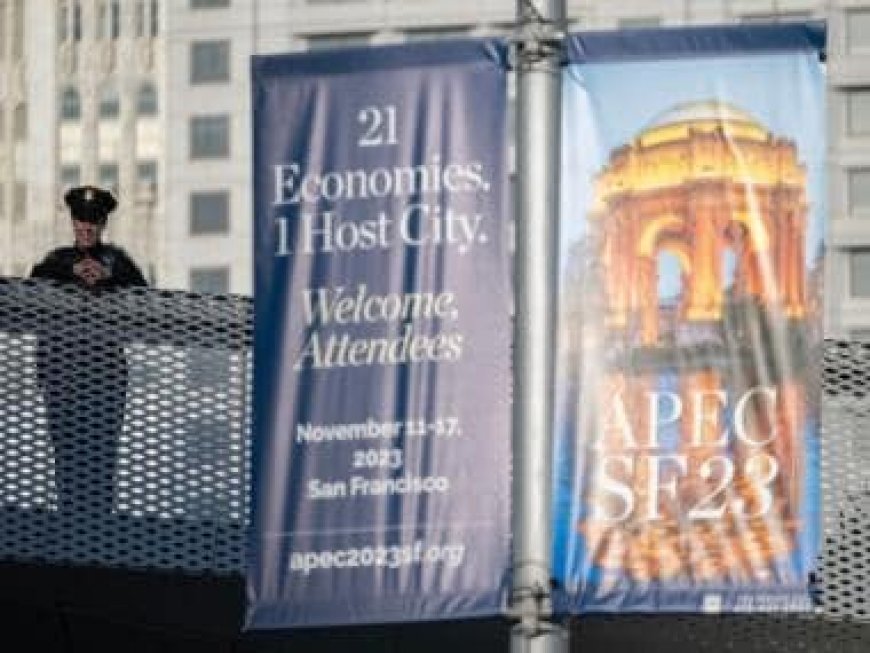US President Joe Biden to embrace Asia allies - and meet Xi in San Francisco
US President Joe Biden to embrace Asia allies - and meet Xi in San Francisco

President Joe Biden is welcoming Pacific Rim friends to San Francisco this week. As part of his efforts to present a unified front against Beijing’s increasing influence, the US leader will also host a crucial summit with Chinese President Xi Jinping there.
In the largest diplomatic gathering in San Francisco since 1945, Biden leads the 21-member Asia-Pacific Economic Cooperation (APEC) conference, which is striving to maintain its reputation as a leader in technology while sprucing up its widespread homelessness issue.
A new US-led trade agreement for Asia is anticipated to be unveiled by Biden; it is significantly less ambitious than past attempts, but some in his Democratic Party have already expressed resistance.
The United States conceived APEC three decades ago with the idea of bringing the Pacific Rim together through trade. That rosy view is over when it comes to China, with the Biden administration in recent months ramping up sanctions against Beijing, which it considers the top global challenger to US primacy.
But both the United States and China have voiced hope for greater stability. With a visit to Washington politically unfeasible and US elections one year away, APEC marks a unique chance for Xi to see Biden on US soil.
The Biden-Xi meeting on Wednesday — their first since a year ago at a G20 summit in Bali — is expected to take up a broad gamut of disagreements including Taiwan, whose elections in two months could trigger fresh tensions with Beijing, which claims sovereignty over the self-ruling democracy and has not ruled out seizing it by force.
For other leaders in San Francisco, APEC risks “feeling like a sideshow” to the Biden-Xi meeting, said Jude Blanchette, a China specialist at the Center for Strategic and International Studies.
But he added: “Even countries in the region who are extraordinarily worried about China’s increasing aggression still have deep economic inter-linkages with China and at the margin would vastly prefer a stable US-China relationship to an unstable one.”
US Treasury Secretary Janet Yellen on Monday led talks among APEC finance ministers at which she called for a refocus on longer-term fiscal priorities following the disruption of the Covid-19 pandemic as part of “our shared vision of an open, dynamic, resilient and peaceful Asia-Pacific community.”
Emphasizing alliances
Biden, drawing an implicit contrast to his isolationist predecessor and 2024 rival Donald Trump, has focused on highlighting the power of US alliances.
US allies attending APEC will include Australian Prime Minister Anthony Albanese — who over the past month has visited both Washington and Beijing — as well as Japanese Prime Minister Fumio Kishida and South Korean President Yoon Suk Yeol.
Before flying to San Francisco, Biden offered a White House welcome to outgoing Indonesian President Joko Widodo, as the United States seeks to compete with China for the archipelago’s vast nickel reserves, vital for electric cars.
Biden had no respite from the Middle East, which has dominated his time for the past month, with the leader of the world’s largest Muslim-majority country urging the United States to “do more to stop the atrocities in Gaza,” referring to Israel’s military campaign in response to a major Hamas attack that killed mostly civilians.
In contrast to its diplomacy aimed at avoiding conflict with China, the United States has shunned Russia — also an APEC member — over President Vladimir Putin’s invasion of Ukraine.
Russia will be represented by Deputy Prime Minister Alexei Overchuk, who is not under US sanctions.
The United States will be “good hosts” and let Overchuk “participate fully in the week’s events,” Matt Murray, the US State Department official in charge of APEC, told AFP.
Controversy on trade
Free-trade deals, once seen as staples for US diplomacy, have fallen sharply out of favor in Washington.
Trump on taking office pulled out of the nascent Trans-Pacific Partnership pitched to Asian allies by his predecessor Barack Obama as a way to exert US leadership.
Biden has instead coined the Indo-Pacific Economic Framework for Prosperity (IPEF), which seeks to streamline business standards but, unlike traditional trade deals, does not open up market access.
Biden is expected to outline progress on IPEF which will bring together three of the world’s largest five economies — the United States, Japan and India — as well as Australia, South Korea and much of Southeast Asia, but not China.
Senator Sherrod Brown, a member of Biden’s Democratic Party who faces reelection next year in battleground Ohio, on the eve of the summit called for the entire removal of trade from the IPEF, amid fears Trump again will seize on the issue.
“Any trade deal that does not include enforceable labor standards is unacceptable,” Brown said.
What's Your Reaction?



























































